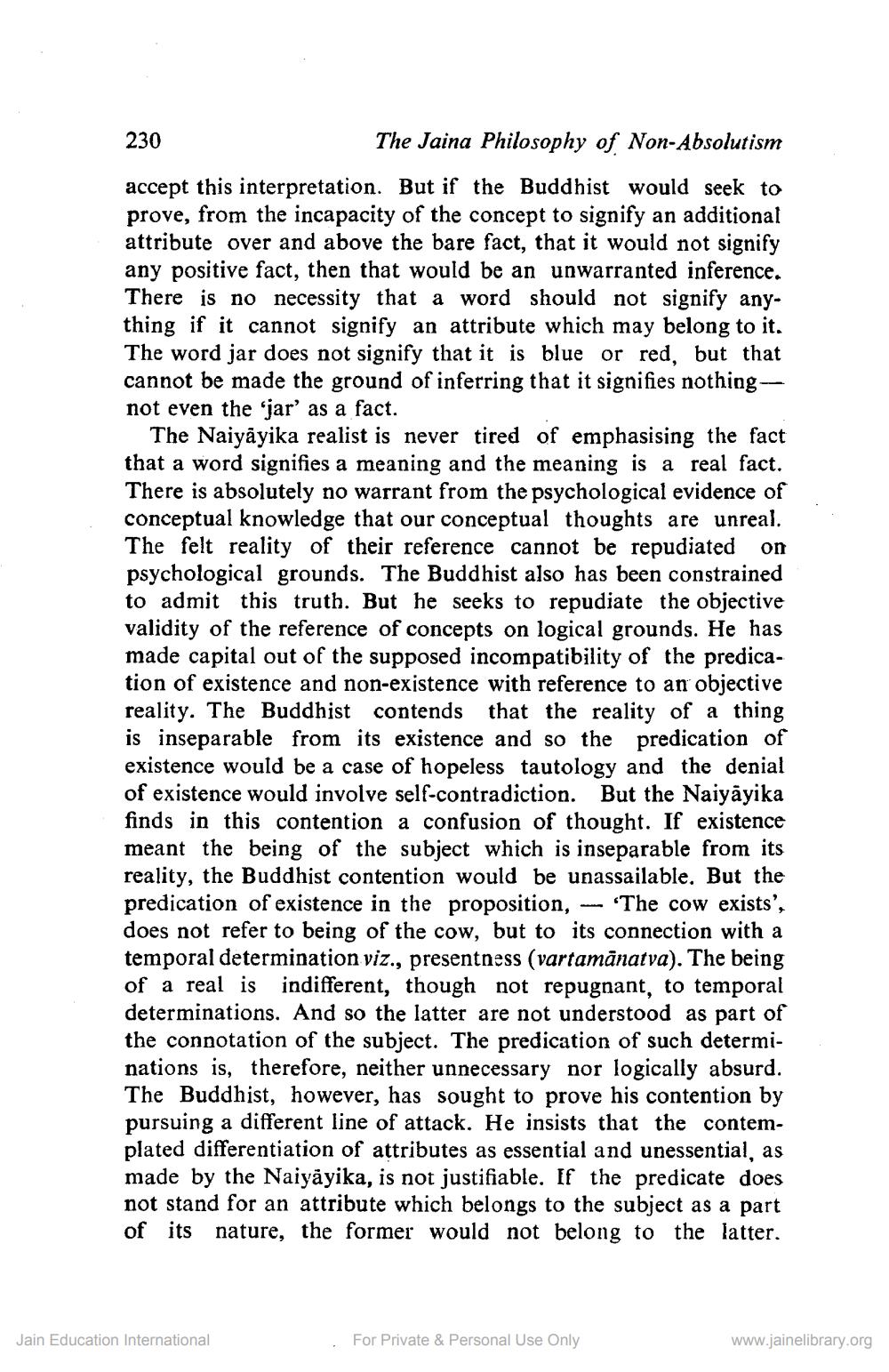________________
230
The Jaina Philosophy of Non-Absolutism
accept this interpretation. But if the Buddhist would seek to prove, from the incapacity of the concept to signify an additional attribute over and above the bare fact, that it would not signify any positive fact, then that would be an unwarranted inference. There is no necessity that a word should not signify anything if it cannot signify an attribute which may belong to it. The word jar does not signify that it is blue or red, but that cannot be made the ground of inferring that it signifies nothing -- not even the 'jar' as a fact.
The Naiyāyika realist is never tired of emphasising the fact that a word signifies a meaning and the meaning is a real fact. There is absolutely no warrant from the psychological evidence of conceptual knowledge that our conceptual thoughts are unreal. The felt reality of their reference cannot be repudiated on psychological grounds. The Buddhist also has been constrained to admit this truth. But he seeks to repudiate the objective validity of the reference of concepts on logical grounds. He has made capital out of the supposed incompatibility of the predication of existence and non-existence with reference to an objective reality. The Buddhist contends that the reality of a thing is inseparable from its existence and so the predication of existence would be a case of hopeless tautology and the denial of existence would involve self-contradiction. But the Naiyāyika finds in this contention a confusion of thought. If existence meant the being of the subject which is inseparable from its reality, the Buddhist contention would be unassailable. But the predication of existence in the proposition, - "The cow exists', does not refer to being of the cow, but to its connection with a temporal determination viz., presentness (vartamanatya). The being of a real is indifferent, though not repugnant, to temporal determinations. And so the latter are not understood as part of the connotation of the subject. The predication of such determinations is, therefore, neither unnecessary nor logically absurd. The Buddhist, however, has sought to prove his contention by pursuing a different line of attack. He insists that the contemplated differentiation of attributes as essential and unessential, as made by the Naiyáyika, is not justifiable. If the predicate does not stand for an attribute which belongs to the subject as a part of its nature, the former would not belong to the latter.
Jain Education International
For Private & Personal Use Only
www.jainelibrary.org




